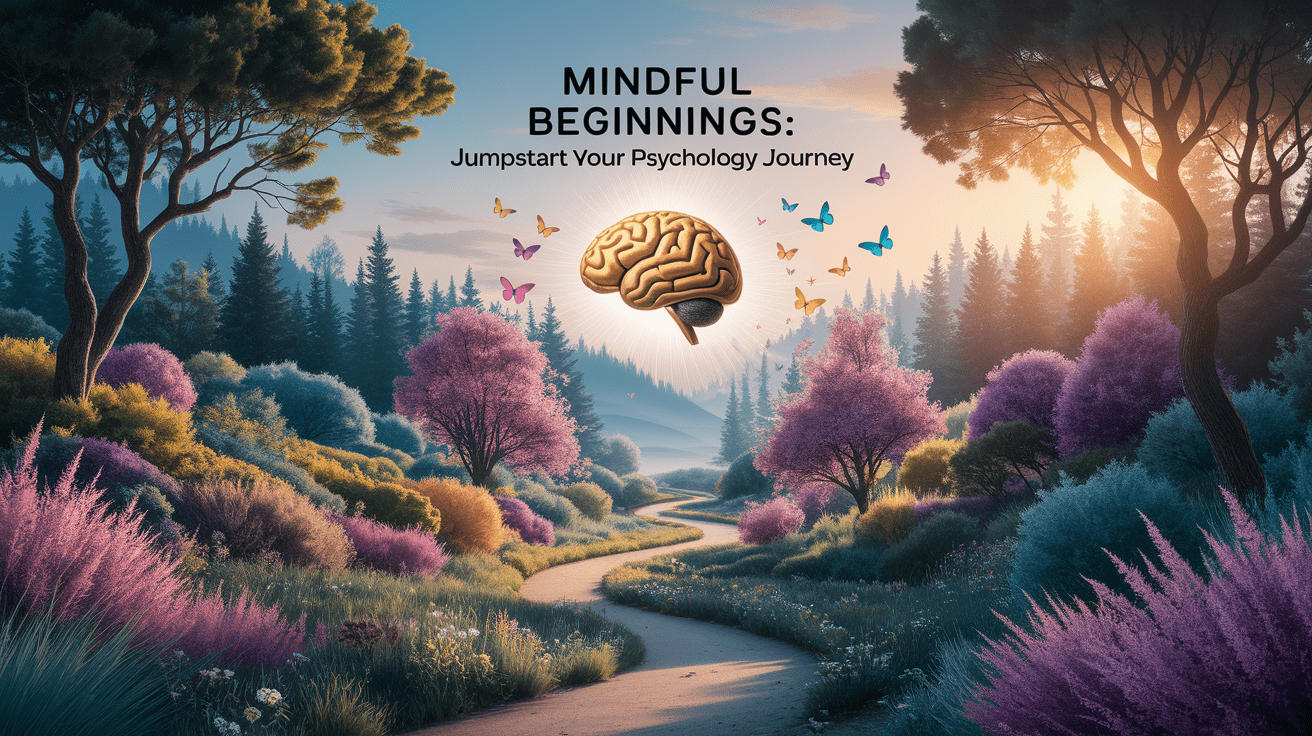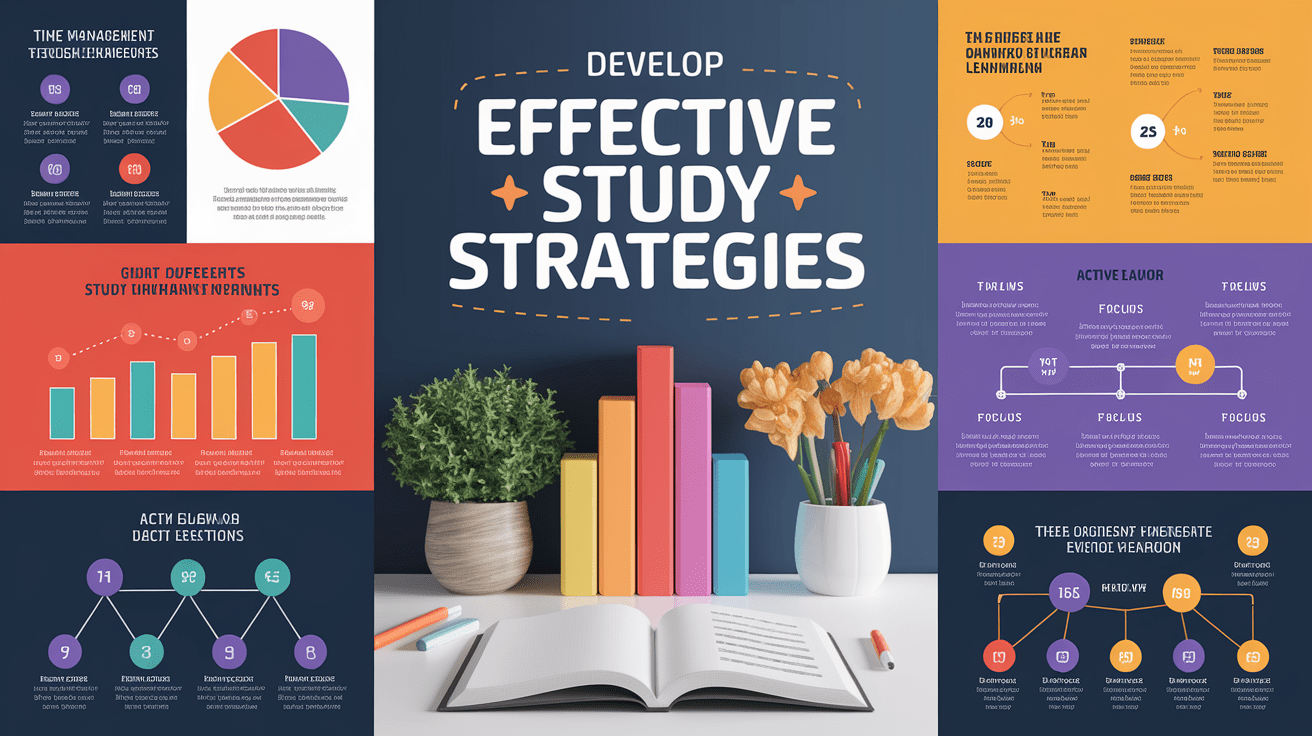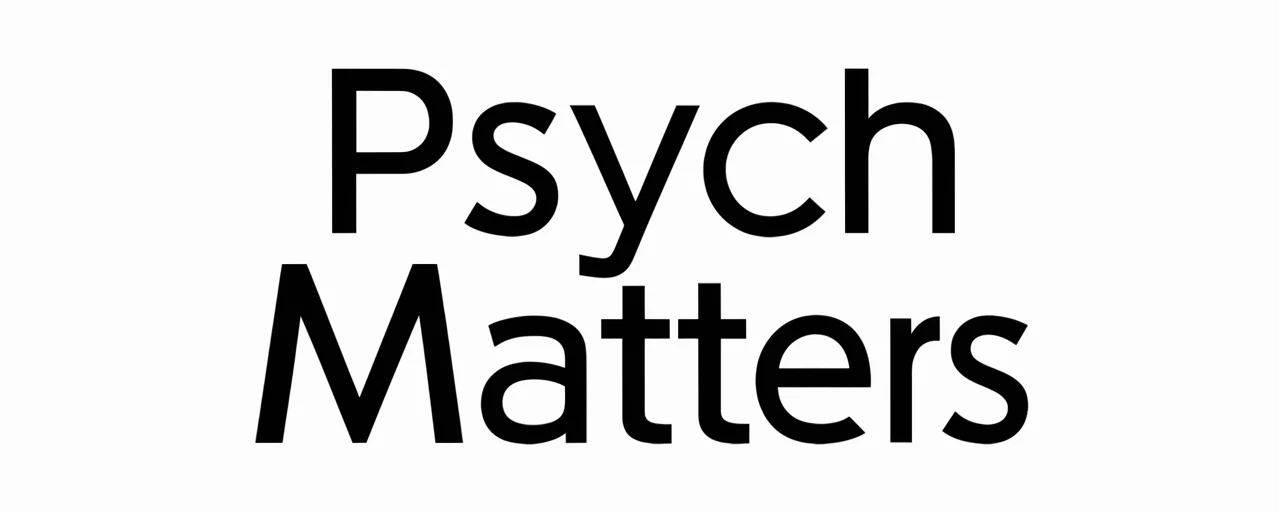Mastering Psychology Studies: Your Practical Blueprint
Embarking on the study of psychology is to begin a fascinating exploration of the human mind and its intricate workings. Yet, the sheer volume of theories, research, and terminology can feel overwhelming. This guide provides a practical blueprint for how to study psychology effectively, moving beyond simple memorization to achieve a deep and applicable understanding. Your success hinges not just on what you study, but on how you approach the fundamental goal of understanding human behavior and mental processes.
Mindful Beginnings: Jumpstart Your Psychology Journey
Success in studying psychology begins with the right mindset. This field is not a collection of abstract ideas but a dynamic science dedicated to understanding the complexities of experience and behavior. Approach your studies with curiosity and a commitment to critical thinking. One of the most common challenges is the breadth of the subject, from the cellular level of neuroscience to the broad influences of culture. Overcome this by accepting that mastery is a marathon, not a sprint. Focus on building connections between topics rather than trying to learn everything in isolation. Acknowledge that the journey involves grappling with ambiguity and developing a tolerance for questions that may not have simple answers.

Build a Strong Foundation
A sturdy intellectual structure is essential for navigating the complexities of psychology. Typical degree programs, as outlined by educational resources like educations.com, mandate coursework in core areas that provide this very foundation. These pillars support every specialization you may later pursue.
Grasp Research Methods and Statistics
Psychology is, at its heart, a science. Therefore, a robust understanding of research methods and statistics is non-negotiable. These courses teach you how knowledge is generated, tested, and refined. You will learn to differentiate between a well-designed experiment and anecdotal evidence, a crucial skill for any student. The American Psychological Association (APA) emphasizes that these skills are central to the undergraduate major. This involves everything from understanding experimental design in Experimental Psychology to grasping the statistical tools used for measuring the mind through psychometrics.

Appreciate the Scientific and Historical Context
Understanding where psychological theories came from—and how they were tested—is vital. Familiarize yourself with the Historical Figures in Psychology, from Wundt and James to Freud and Skinner, to see how ideas evolved. This contextual knowledge helps clarify why certain theories predominate and how the field has addressed its own biases and limitations over time. This rigorous, evidence-based approach defines the scientific nature of psychology.
Embrace Diverse Perspectives
A comprehensive education in psychology requires more than just learning established Western theories. As you build your foundational knowledge, it is critical to consider the interplay of culture and mind. Understanding how cultural contexts shape behavior, cognition, and emotion prevents a narrow, ethnocentric view and enriches your comprehension of human diversity. This global perspective is crucial for both academic study and future practice.
Develop Effective Study Strategies
Passive reading and highlighting are among the least effective study methods. To truly learn psychology, you must engage with the material actively. The most effective study techniques often draw from cognitive psychology itself, creating a meta-learning loop where you are applying psychological principles to improve study habits.
Embrace Active Recall and Spaced Repetition
Instead of re-reading your notes, practice active recall. This means closing the book and actively retrieving the information from your memory. Here’s how:
- Flashcards Psychology: Create flashcards (digital or physical) not just for key terms but for entire concepts. One side poses a question (e.g., “Explain the core tenets of Cognitive Dissonance Theory”), and the other provides a detailed answer.
- Practice Questions Psychology: Work through end-of-chapter questions, find online quizzes, or create your own practice exams. This simulates testing conditions and highlights knowledge gaps.
Combine active recall with spaced repetition—reviewing material at increasing intervals over time. This technique combats the forgetting curve and helps transfer information from short-term to long-term memory, which is essential for memorizing complex psychological theories.

Master Your Note-Taking
Effective note-taking is not about transcription; it’s about synthesis. Avoid passively writing down everything the lecturer says. Instead, listen for key ideas and structure your notes in a way that promotes understanding.
Consider the Cornell Note-Taking System: Divide your page into three sections—a main area for notes, a smaller column for cues or questions, and a summary section at the bottom. This structure forces you to process and summarize the information immediately.
To Group or Not to Group?
The question of whether to study alone or in a group has a nuanced answer. Both have their merits.
- Solo Study: Ideal for initial learning, memorization, and absorbing foundational knowledge from textbooks without distraction.
- Study Groups: Excellent for enhancing understanding. Explaining a concept like operant conditioning to someone else is a powerful way to solidify your own knowledge. Groups can also help you see a problem from multiple perspectives and improve your critical thinking skills.
A balanced approach is often best. Use solo time to master the basics and group sessions to challenge, discuss, and deepen that knowledge.
Leverage Quality Resources
Your textbook is a starting point, not the final word. A guide from Psychology.org highlights a wealth of free online materials that can supplement your learning and provide alternative explanations for difficult concepts.

- Online Courses: Platforms like Coursera and edX offer courses from top universities. MIT OpenCourseWare provides free access to full course materials, including lecture notes and exams for subjects like Introduction to Psychology.
- Academic Journals: Get comfortable navigating databases like PsycINFO and Google Scholar. Reading primary research articles is crucial for research paper writing in psychology and understanding how knowledge is communicated in the field.
- Reputable Websites: The American Psychological Association (APA) website is an invaluable resource for information on theories, careers, and ethical guidelines, including the ubiquitous APA Style for citations.
Apply Psychology in Real Life
The best way to make psychological concepts stick is to connect them to the world around you. This transforms abstract ideas into tangible tools for understanding yourself and others. This practice directly addresses how you can apply psychological concepts to real-life situations.

- Observe and Analyze: When you witness a social interaction, think about the principles of Social Psychology at play. Notice conformity, bystander effect, or persuasion techniques in your daily life.
- Connect to Experience: Relate theories of memory from Cognitive Psychology to your own study habits. See principles of Developmental Psychology in the behavior of children you know. When studying Abnormal Psychology, connect diagnostic criteria to character portrayals in media, while being mindful of stereotypes.
- Use it for Self-Improvement: Apply knowledge about motivation, habit formation, and stress management to your own life. This personal application is a powerful motivator for studying psychology.
Navigate Specializations and Next Steps
As you progress, you will discover specific areas of psychology that capture your interest. A bachelor’s degree provides a broad foundation, which according to guides like PublicServiceDegrees.org, is the first step toward numerous psychology careers. Whether your interest lies in Clinical Psychology, health psychology, or neuroscience, your undergraduate studies are where you explore these paths. Take specialized courses, seek out research opportunities with professors, and consider what kind of impact you want to make. This exploration will inform your decision to pursue graduate studies or apply your psychological knowledge in fields like marketing, human resources, or education.
Psych Into Practice: Your Path Forward
Studying psychology is a rewarding process of discovery. It equips you with a unique lens through which to view the human experience. By building a solid foundation, adopting active and evidence-based study strategies, and consistently connecting theory to practice, you will not just pass your exams—you will cultivate a deep, enduring understanding of the field. Your journey in mastering psychology starts with a single, well-structured step.
Key Takeaways
- Build a Strong Foundation: Prioritize understanding research methods, statistics, and the history of psychology. This is the bedrock of the entire discipline.
- Study Actively, Not Passively: Use techniques grounded in cognitive science, such as active recall (with flashcards and practice questions) and spaced repetition, to ensure long-term retention.
- Synthesize, Don’t Transcribe: Develop a note-taking system like the Cornell Method that forces you to process and summarize information as you learn it.
- Balance Your Study: Use a hybrid approach of studying alone to absorb information and in groups to challenge and deepen your understanding through discussion.
- Look Beyond the Textbook: Supplement your learning with quality online resources like Coursera and MIT OpenCourseWare, and get comfortable with academic journals.
- Apply What You Learn: Actively connect psychological theories to your own experiences and observations of the world to make the concepts tangible and memorable.







